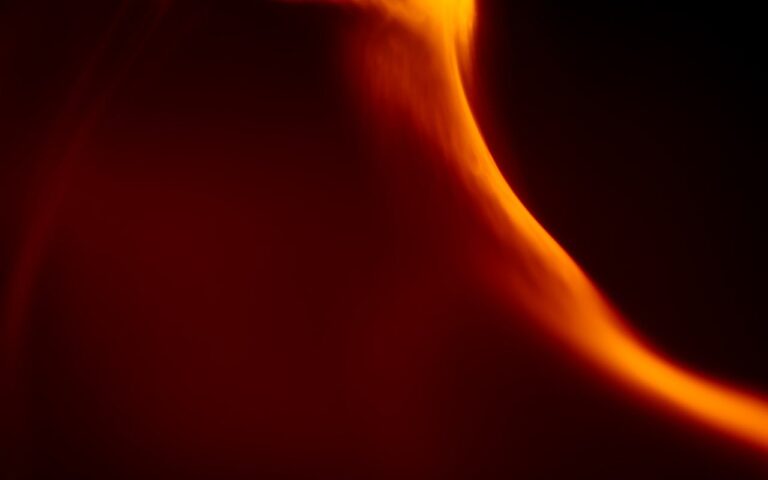Have you ever stared up at the night sky and wondered what truly lies out there? Like, wondered? If galaxies, stars, and nebulas aren’t mysterious enough, there’s something even more mind-blowing lurking in the cosmos — black holes. They’re strange, perplexing, and honestly just… wild. For so long, black holes have felt like sci-fi to me, like something too bizarre to exist in the “real world.” But when you dig in (metaphorically, please), they’re one of the coolest, most intriguing phenomena out there.
This beginner’s guide isn’t just a crash course in what black holes are; it’s permission to geek out. You’ll learn what makes these cosmic titans tick, why they matter, and, yes, what makes them utterly fascinating. Whether you’re someone who already loves astronomy or you just think space is neat, I promise there’s something here for you.
Buckle up—this is a ride into the unknown.
Table of Contents
What is a Black Hole?
Okay, to start… what even is a black hole? Imagine a place in space where gravity is so intense, that nothing—not even light—can escape from it. Yep, light itself is like, “Nope, can’t deal. I’m outta here.” That’s why black holes are, well, black. They’re freakishly dense objects in space, often formed when massive stars collapse in on themselves. Think of it like a star that’s gone on this catastrophic diet and is now impossibly compact.
Types of Black Holes
Not all black holes are created equal, which honestly feels like the space version of “different strokes for different folks.” Here’s the breakdown:
- Stellar Black Holes – These are formed when a massive star dies and collapses. They’re the “regular-sized” ones, a few times the mass of the Sun.
- Intermediate Black Holes – These are the middle children of black holes. Not as big as the massive ones but definitely bulkier than stellar black holes. Scientists are still learning how these form (because of course space loves to keep secrets).
- Supermassive Black Holes – Meet the kings of chaos. These monsters are millions or even billions of times the Sun’s mass, chilling out at the centre of galaxies like cosmic royalty. Fun fact? There’s probably one sitting smack in the middle of our galaxy, the Milky Way. Pretty metal, right?
Formation and Life Cycle of a Black Hole
Black holes don’t just “pop” into existence—it’s not like, poof, here’s one. They have a bit of drama involved.
How Do They Form?
Most often, they form from the collapse of massive stars. When a star exhausts all its nuclear fuel, it can’t hold against the crushing pull of its gravity. Gravity wins the war, and the star implodes, creating a singularity—a one-point wonder with infinite density. Oh, and boom—you’ve got a stellar black hole.
Other ways black holes can form:
- Merging Black Holes – Two smaller black holes can collide, creating a larger one. (Yes, black holes can “eat” each other. Delightful, right?)
- Early Universe Black Holes – Some black holes might have formed right at the dawn of time, during the early stages of the universe. The jury’s still out on this!
Do Black Holes Live Forever?
Here’s where it gets even wilder. Theoretically, thanks to something called Hawking radiation, black holes might evaporate over billions of years. But don’t worry—we’re talking lifespans longer than the universe itself has existed, so we’re not in danger of suddenly losing our cosmic vacuum cleaners.
Properties of Black Holes
If you thought the story of black holes was already strange, welcome to the next level. These properties are like something out of a fever dream—but they’re entirely grounded in science.
Gravitational Pull and the Event Horizon
Black holes are masters of gravity. But the real kicker is the event horizon. This is the “point of no return.” Once something crosses the event horizon, it’s not coming back. Ever. Not even light.
Imagine tossing your phone into a black hole (why would you, though?). If it crosses the event horizon, you can kiss it goodbye forever. Unless, you know, your phone has figured out how to beat the laws of physics (in which case, please sell that technology).
Hawking Radiation
This is where black holes mess with our heads. While they’re known for their crazy pull, they also lose tiny bits of mass over time through a process called Hawking radiation. It’s as if black holes are, very slowly, leaking energy into space.
Detecting Black Holes
Here’s the thing—you can’t literally “see” a black hole. Its whole deal is that it absorbs light, so we have to get creative. And scientists? They’ve gotten downright clever.
Methods of Detection
- Gravitational Waves – When black holes collide, they create ripples in spacetime (yes, ripples in spacetime). Instruments like LIGO detect these waves.
- Orbiting Stars – By watching how stars move, scientists can infer a black hole’s presence nearby. It’s like playing cosmic detective.
- Accretion Disks – Black holes surrounded by superheated gas and dust give themselves away. That spinning material is what telescopes like the Event Horizon Telescope capture.
Mysteries and Theories
If you’ve stuck with me this far, you’re probably wondering, “Wait… what else don’t we know?” Spoiler alert—tons.
Unanswered Questions
- What happens if you fall into a black hole? (Current science says you’d “spaghettify,” which is a cute way of saying you’d stretch into oblivion. Fun!)
- What’s at the centre of a black hole? (The singularity? A wormhole? Nobody knows.)
- Could black holes be portals to other dimensions? (This one keeps popping up in sci-fi but is still an open question for physicists. Keep dreaming, though—Interstellar fans.)
Bold Theories
Black holes have inspired some wild theories. One idea suggests that black holes might be the seeds for entirely new universes. I know—my mind is officially blown.
The Impact of Black Holes
Black holes do more than just “sit there menacingly.” They help shape galaxies, regulate star formation, and keep the cosmic balance in check—all while captivating our imaginations.
Why They Matter
- Galactic Anchors – Supermassive black holes help keep galaxies together. Without them, some galaxies might just tumble apart.
- Inspirational AF – Okay, this one’s less scientific, but think about it. Black holes constantly push us to imagine, theorize, and explore the unknown. How cool is that?
Implications for Space Travel
While black holes make lousy vacation spots (unless you enjoy certain doom), they could someday help us understand spacetime travel and alternate dimensions.
Keep Exploring the Cosmos
If black holes teach us one thing, it’s to stay curious. They’re proof that the universe is full of mysteries we’re only just beginning to understand. Whether you’re a budding scientist, a space enthusiast, or someone who simply loves the unknown, they offer endless fascination.
Do you have questions or theories? Share them below! And if you want to continue the cosmic chat, grab a telescope—or even better, turn your passion into action with astronomy courses or stargazing communities. The universe is waiting.





















0 Comments